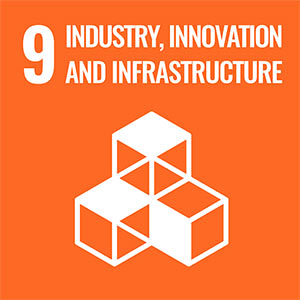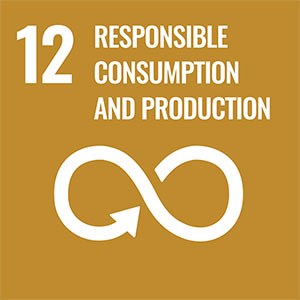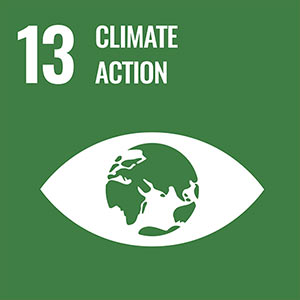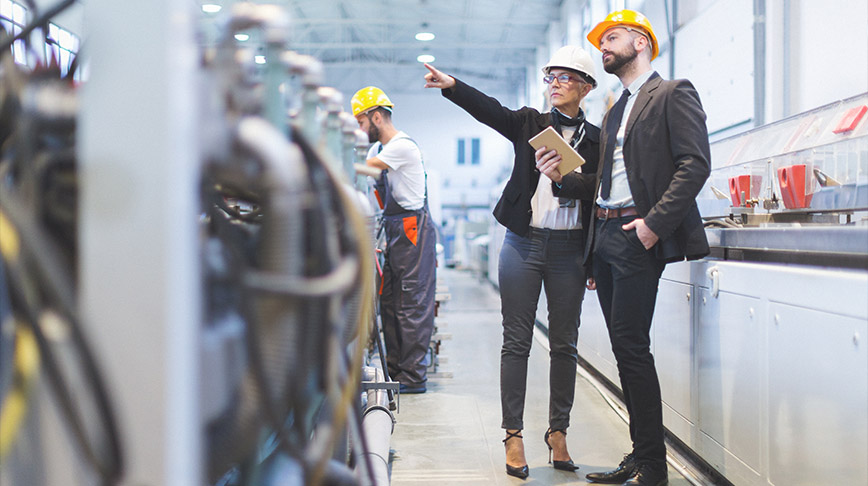MSc Sustainable Production Development
The master's programme in Sustainable Production Development focuses on the sustainable design and development of production systems. Students acquire skills to create advanced production systems and transition existing systems focusing on circular material flow, increased digitalisation and automation, energy usage, and new manufacturing technologies. Graduates shape the future development of sustainable production with influential roles in industry and consultancy or through PhD studies.
Sustainable Production Development at KTH
Rational and cost-effective production systems have been vital to industrialisation and wealth for decades. However, the area is experiencing changes and pressure in different dimensions, which are altering the role of production systems. Requirements for more renewable energy usage and circular material flow, increased digitalisation and automation, new manufacturing technologies, service integration and the emergence of new business models are among the phenomena shaping the development of future production systems. Based on a systemic organisation of contemporary science and understanding, courses run in close collaboration with manufacturing companies. Programme graduates are equipped to lead the development and design of production systems, as a part of the solution towards a sustainable society, attractive workplaces and competitive industries.
The programme is run within KTH's research and education environment for Sustainable Production Development, with courses targeting the environment's three specific profile areas: production management, production logistics and industrial dependability.
The course content in the programme is based on the close relationship between the development and operation of production systems in the context of digitalisation and sustainability. Different teaching methodologies that place student-centred learning at the core are applied to the programme. Industrial participation is a key component of this programme, utilising our proximity to the world-leading manufacturing facilities of Scania and AstraZeneca in Södertälje, as well as several SMEs and the infrastructure of Södertälje Science Park. Guest lectures from the industry combined with real-life problems allow course participants to learn from proven practices.
As the programme is run within the expanding research environment at the Department for Production Engineering, the programme closely interacts with industrial-academic research projects and research labs. Programme students are also encouraged to take elective courses both within KTH and externally to enhance knowledge and skills in one’s areas of interest. Methodological teaching and project work also prepare participants for academic and research careers.
This is a two-year programme (120 ECTS credits) given in English. It contains 99 credits of mandatory courses and 21 credits of elective courses. Graduates are awarded the degree of Master of Science. The programme is given mainly at KTH Södertälje by the School of Industrial Engineering and Management (at KTH). Elective courses are also given at KTH Campus Stockholm.
Courses in the programme
The courses in the programme cover topics such as sustainable manufacturing, production development, production systems, production management, production logistics, industrial dependability, sustainability, digitalisation.
Courses in the master's programme in Sustainable Production Development
Students

Future and career
The master's programme in Sustainable Production Development strongly focuses on systems thinking and the underlying need to be proactive in creating production systems with minimal impact on the climate and people while keeping businesses profitable. The close interaction with world-class industries and an active research environment ensures an up-to-date and relevant education. Therefore, students who complete their studies in the programme will be ready to take up a wide range of industrial positions or an academic career. The issues discussed and the knowledge and skills in focus are required by industrial production systems in most (if not all) parts of the world and provide a very attractive graduate profile. Regardless of sector, companies with production management and change activities are potential employers. Automotive and electrical equipment manufacturers, pharmaceuticals, logistics and other service providers are among the typical recruiters of production management graduate profiles. The programme also prepares students interested in pursuing advanced research in the subject area.
Sustainable development
Graduates from KTH have the knowledge and tools for moving society in a more sustainable direction, as sustainable development is an integral part of all programmes. The three key sustainable development goals addressed by the master's programme in Sustainable Production Development are:



The programme addresses the three dimensions of sustainability in the context of industrial production system development and change. As such, it focuses directly on fostering the achievement of sustainable development goals (SDG) 9, 12 and 13, with secondary effects visible in SDG 6 and 8. The industrial infrastructure is part of the more extensive system of infrastructure that is shared in society. Changes in how production systems are developed and organised impact, and are impacted by, changes occurring in adjacent or connected infrastructure (transport, for example). Innovative solutions in production systems can significantly promote opportunities for reduced impact of industrial activities on the planet and society. This is also directly related to actions for combating climate change, as small systematic reductions in the climate impact from manufacturing and production have considerable bearing globally. All in all, the essence of sustainable production system development is enhancing behaviour aimed at responsible production and consumption of industrial inputs and outputs.
Faculty and research
The master's programme in Sustainable Production Development is given at the campus in Södertälje, about an hour away from central Stockholm with public transport. At this new campus, inaugurated in January 2018, KTH has set an ambitious plan to develop research and education for sustainable industries of the future. A new faculty has been recruited with three new professor chairs and several researchers and PhD students. The master's programme is an essential element in this initiative and will be run in close interaction with the research staff at the department. The research groups located in Södertälje focus the research in Production Management, Production Logistics and Industrial Dependability.
- Department of Production Engineering
- Research in Production Management and Strategic Maintenance
- Research in Production Logistics
The facility comprises a spacious new building in central Södertälje with new labs, office spaces and innovative education infrastructure. It is co-located with Södertälje Science Park and is near the head office and manufacturing plant of Astra Zeneca, and close to the head office and major manufacturing sites of Scania CV. Södertälje is one of the key manufacturing nodes in Sweden with more than 20,000 employees in world-class manufacturing companies.
The campus also encompasses KTH's Leancentrum with its lean training centre, offering skills development programmes and knowledge networks for industrial participants. The proximity and intense collaboration with industry is a significant feature of this new campus and its research and education activities. The research projects run at the department concern the three focus areas of Production Management, Production Logistics and Industrial Dependability, as well as the renewal of industrial production practices set by digitisation initiatives and sustainability requirements. The establishment of digital and physical labs for future production and logistics is a key function of this initiative. You are most welcome to a vibrant research and education environment for sustainable industrial production for the future.



